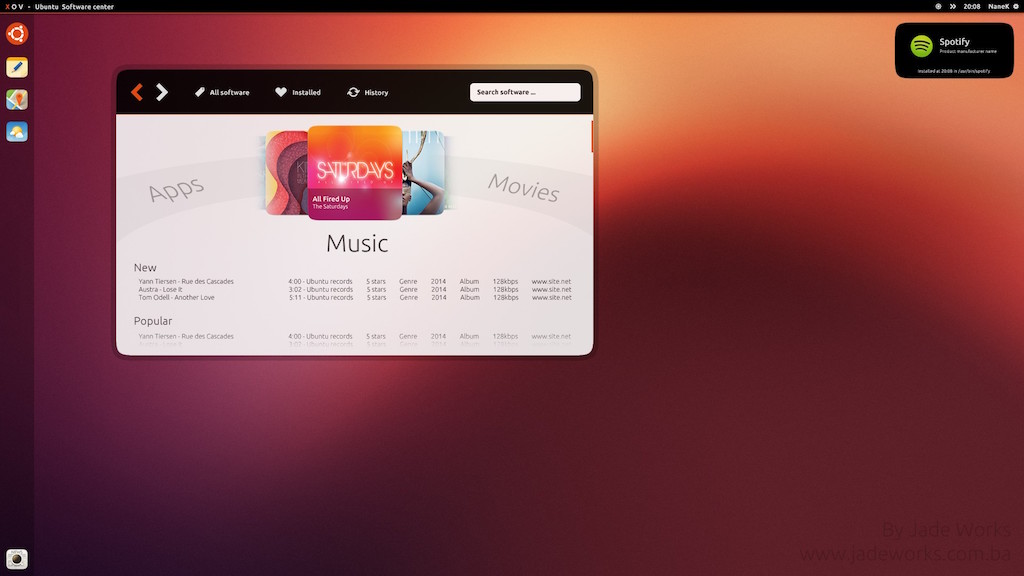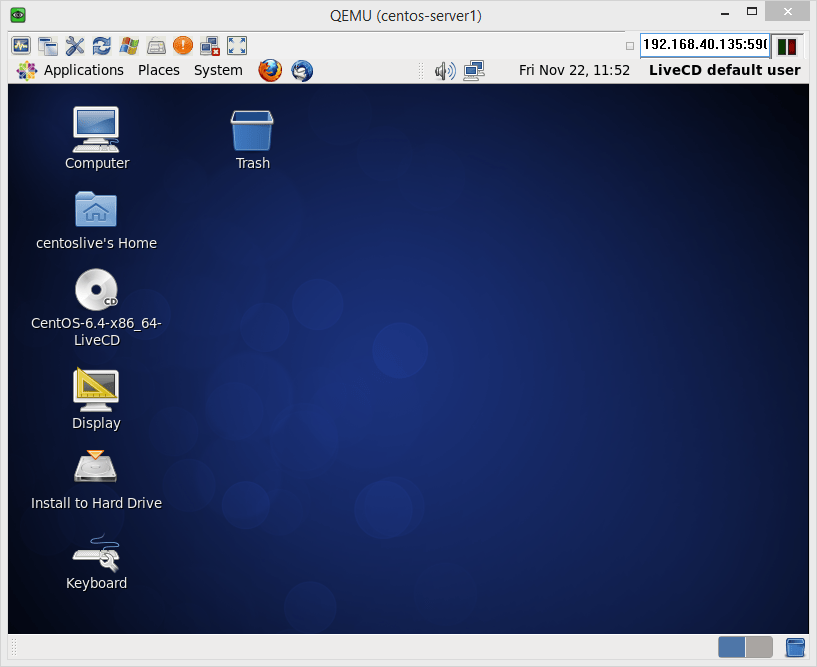Graphical Server Management. Ask Question 9. Start/stop services, edit config files, install/update packages, moving data files, firewall and network tools, and user management such tasks are not enhanced by running a graphical terminal. GUI for Ubuntu Server. Install Ubuntu Server 16.04 For Setting Up Your Own Media Server. While the usual flavor of choice for these ventures is typically Red Hat Enterprise Linux or it’s less expensive cousin CentOS, Ubuntu Server has also carved out its own territory in data centers around the world.
I want to build a high performance web server. I will use Ubuntu Server 9.04.
It would be convenient to install the GNOME desktop, but I could manage by command line only.
How much does the GNOME Desktop slow down the performance of the web server or server in general? I want to determine if the performance hit is worth the desktop.
Also, how does the Webadmin tool impact server performance?
Christopher AltmanChristopher Altman9 Answers
As pointed above, it shouldn't have a big impact on your server performance. I wouldn't install a whole ubuntu-desktop. Lightweight Gnome-core should be definitely enough for a server.
sudo apt-get update
sudo apt-get install xorg gnome-core gdm gnome-media gnome-system-monitor gnome-system-tools gnome-volume-manager gnome-utils gnome-app-install synaptic firefox
Optional:
sudo apt-get install sysv-rc-conf
sysv-rc-conf gives an easy to use interface for manag‐ ing '/etc/rc{runlevel}.d/' symlinks
Find 'gdm' (Gnome Display Manager) and uncheck the boxes for runlevels 2 and 3.
Now you will start your desktop by typing
startx
at the console prompt.
JindrichJindrichGNOME loves to pre-cache memory, so if you're running the GNOME Desktop, you will likely see a large amount of RAM gobbled up very quickly. This isn't a bad thing, for a desktop. While this cached memory is not in direct use (it should be free when needed), there is a performance hit.

If you are really concerned with performance use something lightweight like openbox (with gtk).
I would however discourage the use of a gui on a server. The gui should be on your desktop, and ssh should be enabled on your server. It might seem easier to run GNOME directly on the server, but your goal should be to run as little as possible on every server. Servers are not fancy desktops (even if you current server is an old desktop system).
Joseph KernHow To Enable Gui On Ubuntu Server
Joseph KernUp to now, I've always thought of this as a matter of security rather than performance -- the extra overhead of ensuring gnome and associated packages were up to date. I'd never worried too much about the performance aspect of it, especially since most of the time our linux servers are running without me or anyone else logged in locally.
nedmnedmI can't imagine that the GNOME desktop would slow things down in any appreciable way, except perhaps by using memory that you might want to allocate to other processes. But memory is very cheap these days, so this is a small issue.
Applications that you run while logged in are far more likely to have an impact than GNOME itself. At the moment that you log in, a number of applications will load, and that will have a momentary impact on CPU performance of other applications due to the disk being heavily used for a few tens of seconds, max.
I also cannot imagine Webadmin or any other web app causing a significant performance loss on a server. Not unless you are aggressively using it or unless it is somehow under web attack, causing a large and unusual number of requests going to that web app -- far more than a human being could enter in the same time period. A firewall can prevent that from occurring.
I see no reason today to run any server without a GUI.
 EddieEddie
EddieEddieHaving these packages installed and available really doesn't affect performance until you start using them. Then, the performance hit is going to be dependent on how much that particular component is used.
As far as server maintenance goes, I would use a configuration management system like Chef or Puppet that lets me 'program' the environment through declarative resources, rather than use a web based GUI to manage things without understanding how they actually work.
 jtimbermanjtimberman
jtimbermanjtimbermanGui Interface For Ubuntu Server
Also remember that there's a difference between having the GNOME desktop available on the system and running a graphical login session all the time.
As mentioned above, you can leave the system in runlevel 3 (multi-user with network but without a graphical login session), then start it on demand using startx.
But you don't have to run it locally - you can ssh in with X11 forwarding turned on a do the same. So long as your network connection isn't squeezed through a thin pipe at some point, this will give you the full graphical experience while minimizing the resource usage on the server. All you'll be running is the X11 clients (the desktop, xterm, etc.) without also running an X11 server on the system to render the output of the clients.
James FJames FWhy use a Gui on the server box at all, when you can use webmin or ispconfig.These are two of the popular web gui interfaces for a linux server.You can do everything server related from a remote desktop with a gui feel to interface.
I didn't find the performance to be killer and the added usability is a bonus. Of course, if you can get by without it, it's better - but don't limit yourself if you feel really lost otherwise.
Do not forget that if you need an X11-based utility running on the server (eg a full web browser on a mail server to file delisting requests on some RBLs that you might inadvertently have been put on by unrelated activity), you will not need a local X desktop on that server; you can use X11 fowarding in SSH or even direct X networking to run that app on the server and display it on a client.